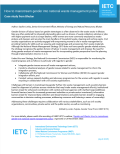
A case study from Bhutan on "How to Mainstream Gender into National Waste Management Policy" presented by Sachin Limbu, Senior Environment Officer, Ministry of Energy and Natural Resources, Bhutan at UNEP-IETC organized webinar on gender and waste management policy on 28 November 2023.
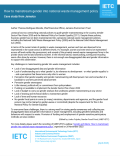
A case study from Jamaica on "How to Mainstream Gender into National Waste Management Policy" presented by Theresa Rodriguez-Moodie, Chief Executive Officer, Jamaica Environment Trust at UNEP-IETC's webinar on gender and waste management policy on 28 November 2023.
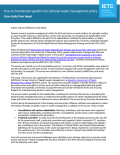
A case study from Nepal on "How to Mainstream Gender into National Waste Management Policy" presented by Karuna Adhikaree, LEAD Nepal at UNEP-IETC's webinar on gender and waste management policy on 28 November 2023.
A case study from Uruguay on "How to Mainstream Gender into National Waste Management Policy" presented by Chiara Fioretto, Political Scientist, Ministry of Environment, Uruguay and Virginia Chiesa, Economist, Ministry of Environment, Uruguay at UNEP-IETC's webinar on gender and waste management policy on 28 November 2023.
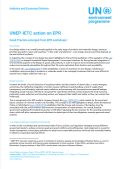
UNEP-IETC has been actively supporting countries in advancing Extended Producer Responsibility (EPR) systems through regional workshops and knowledge-sharing efforts.
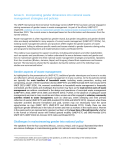
This annex emphasizes the need to integrate gender into waste management policies, as women’s roles are often overlooked despite their key contributions. Drawing on a UNEP-IETC webinar and country cases from Bhutan, Jamaica, Nepal, and Uruguay, it highlights challenges like lack of data and awareness, and shares strategies such as inclusive consultations, gender data collection, and partnerships with gender experts.
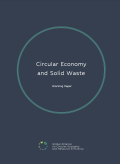
This working paper shows how circular economy practices can support government efforts in managing solid waste and promote sustainable development.
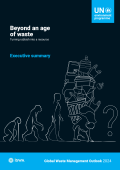
Jointly published with the International Solid Waste Association (ISWA), the report provides an update on global waste generation and the cost of waste and its management since 2018.
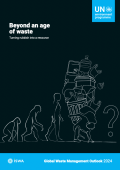
This report provides an update on global waste generation and the cost of waste and its management and presents potential strategies for waste reduction.
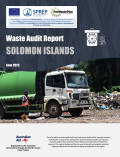
This report is a consolidation of two audit reports, which aims to support the development and monitoring of waste and resource recovery projects in the Solomon Islands and recommend the infrastructure and policy interventions required.

